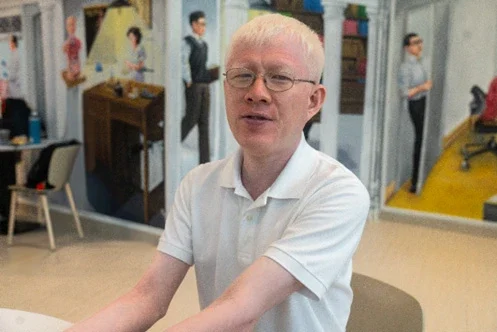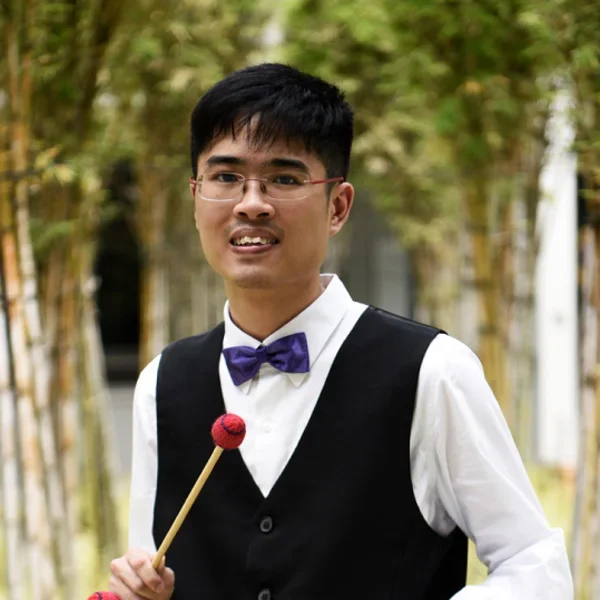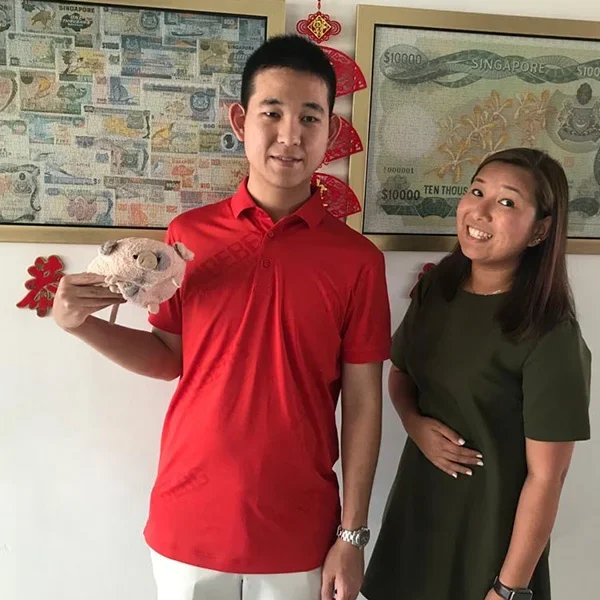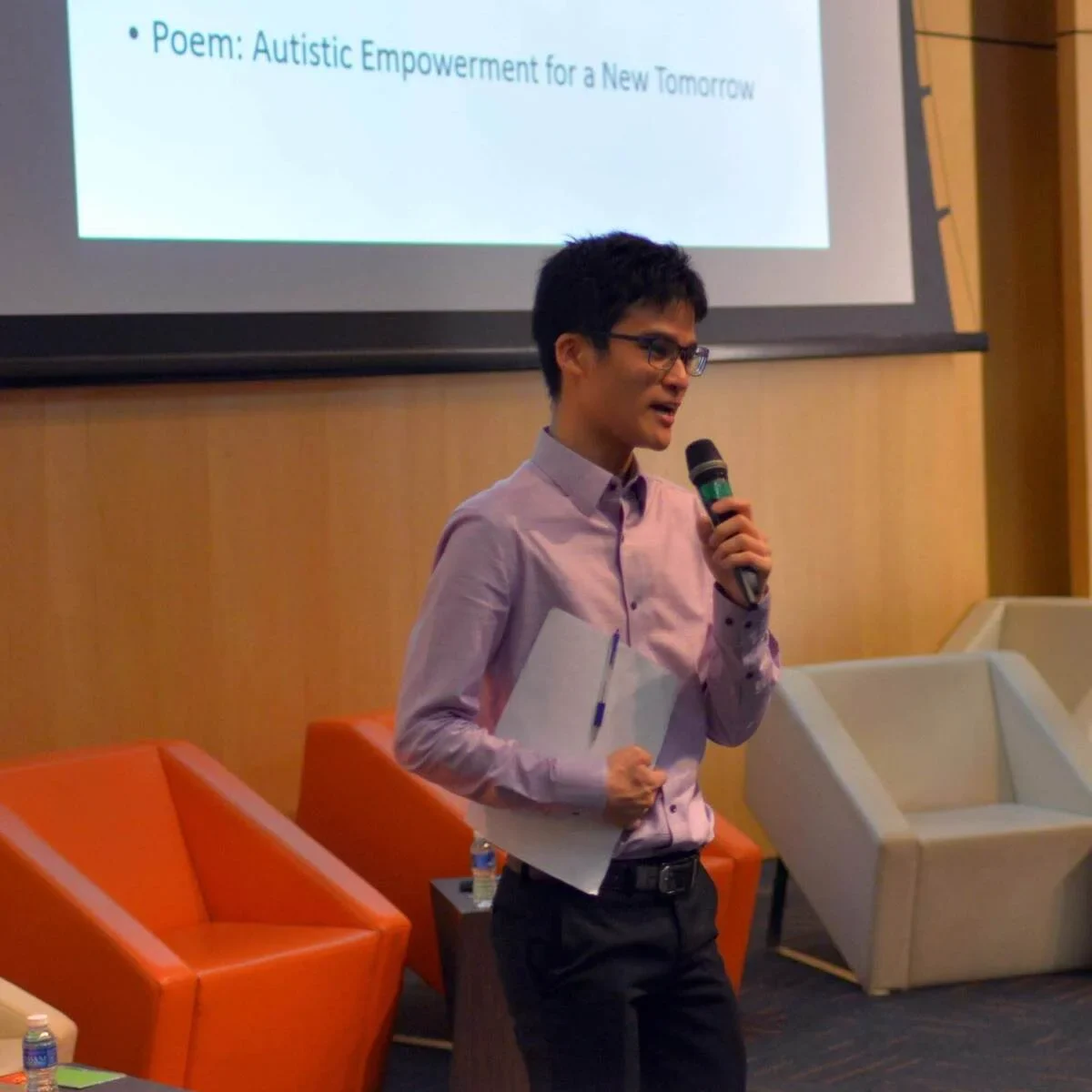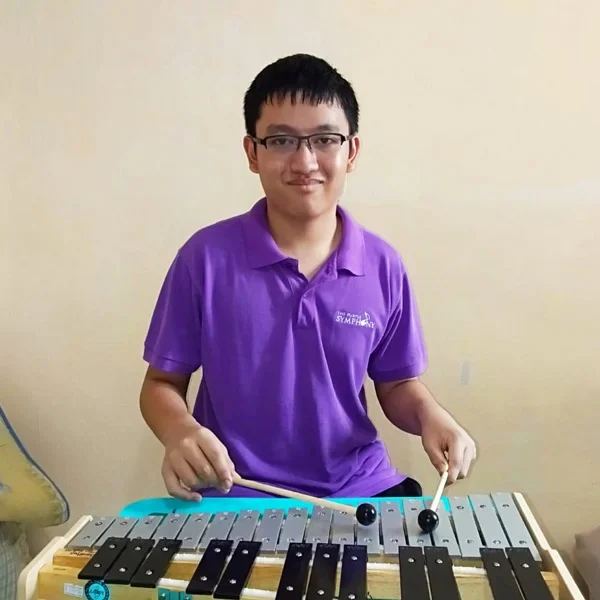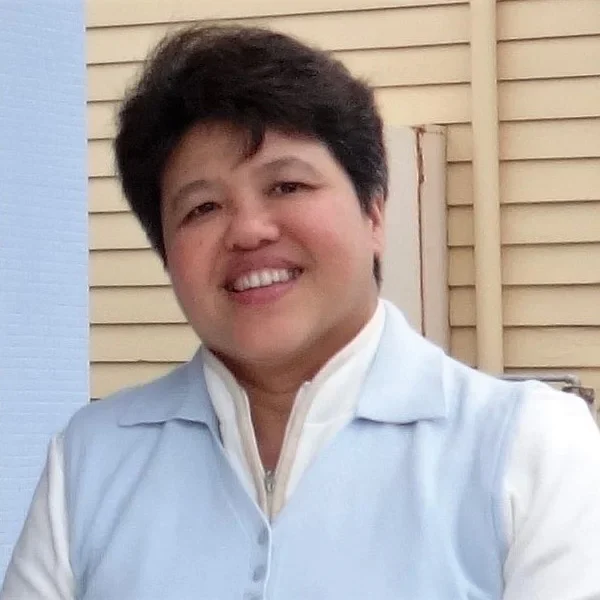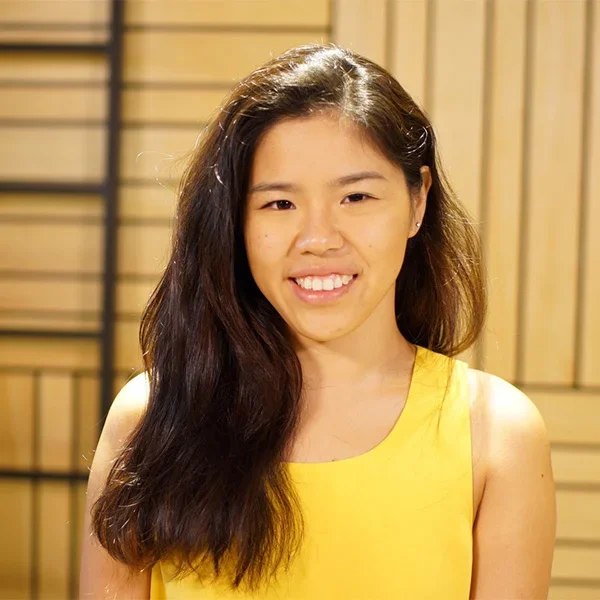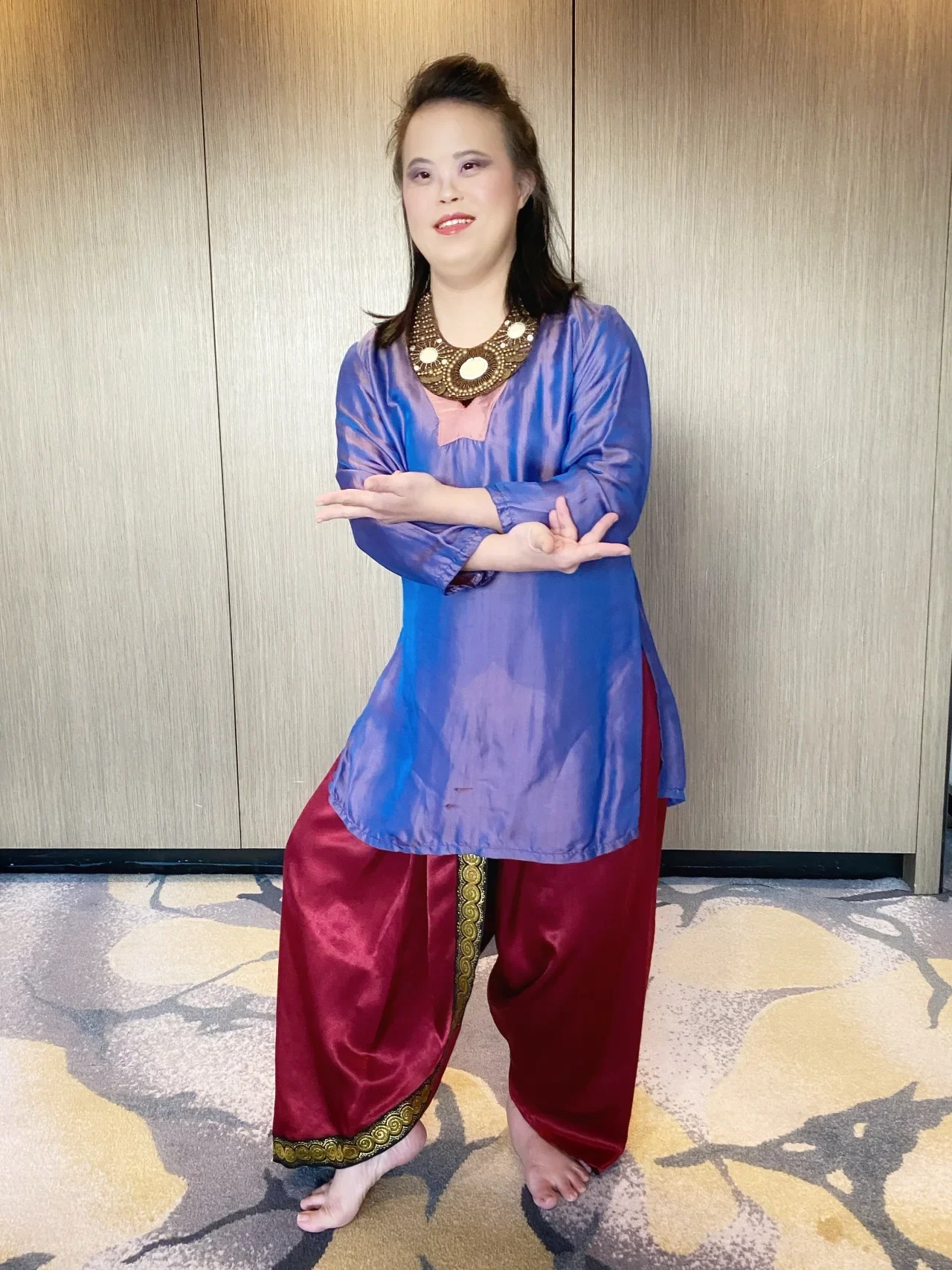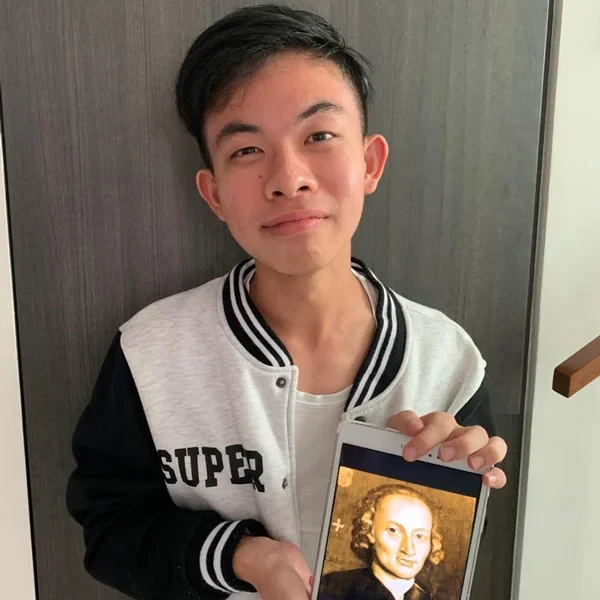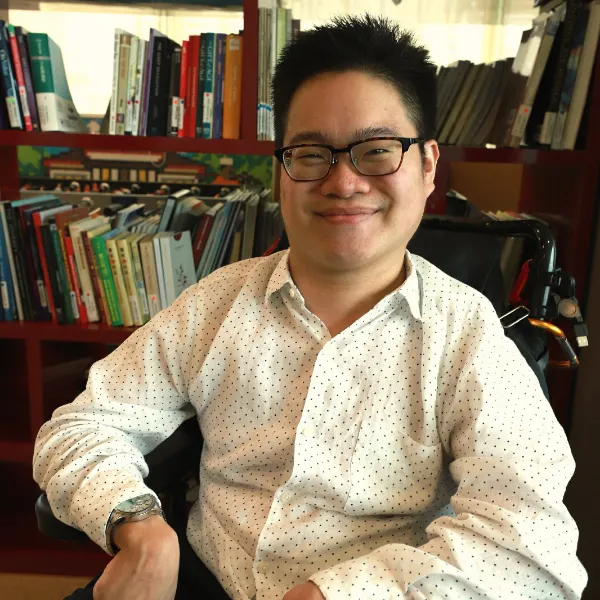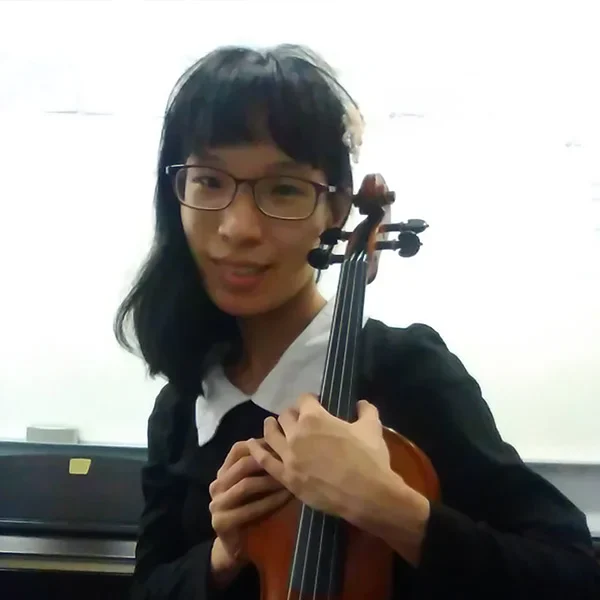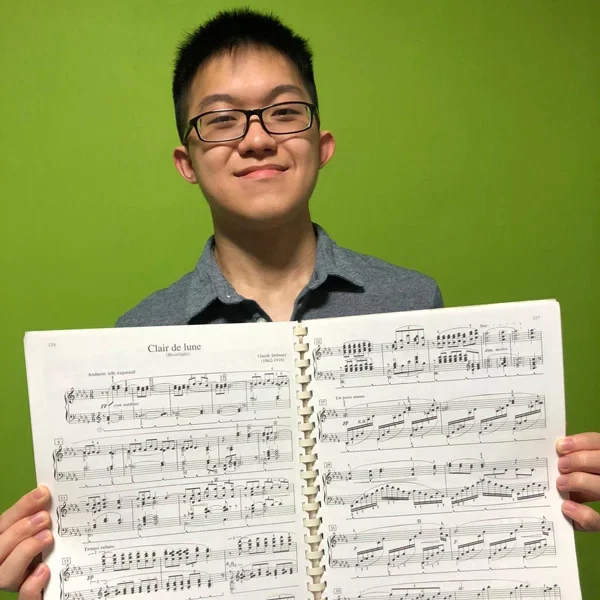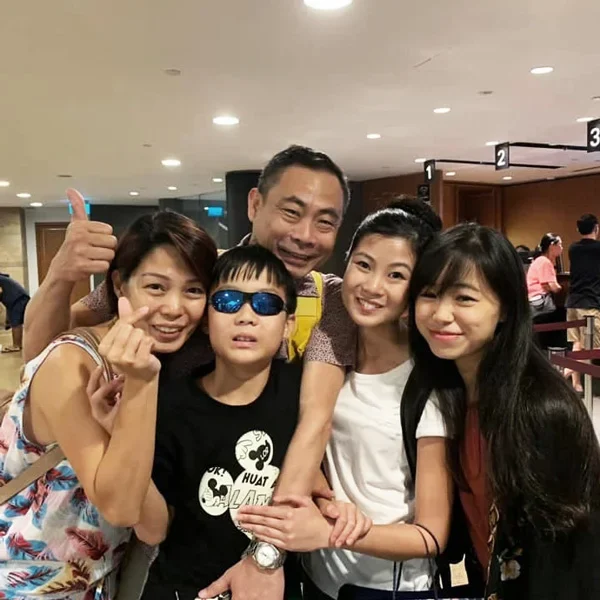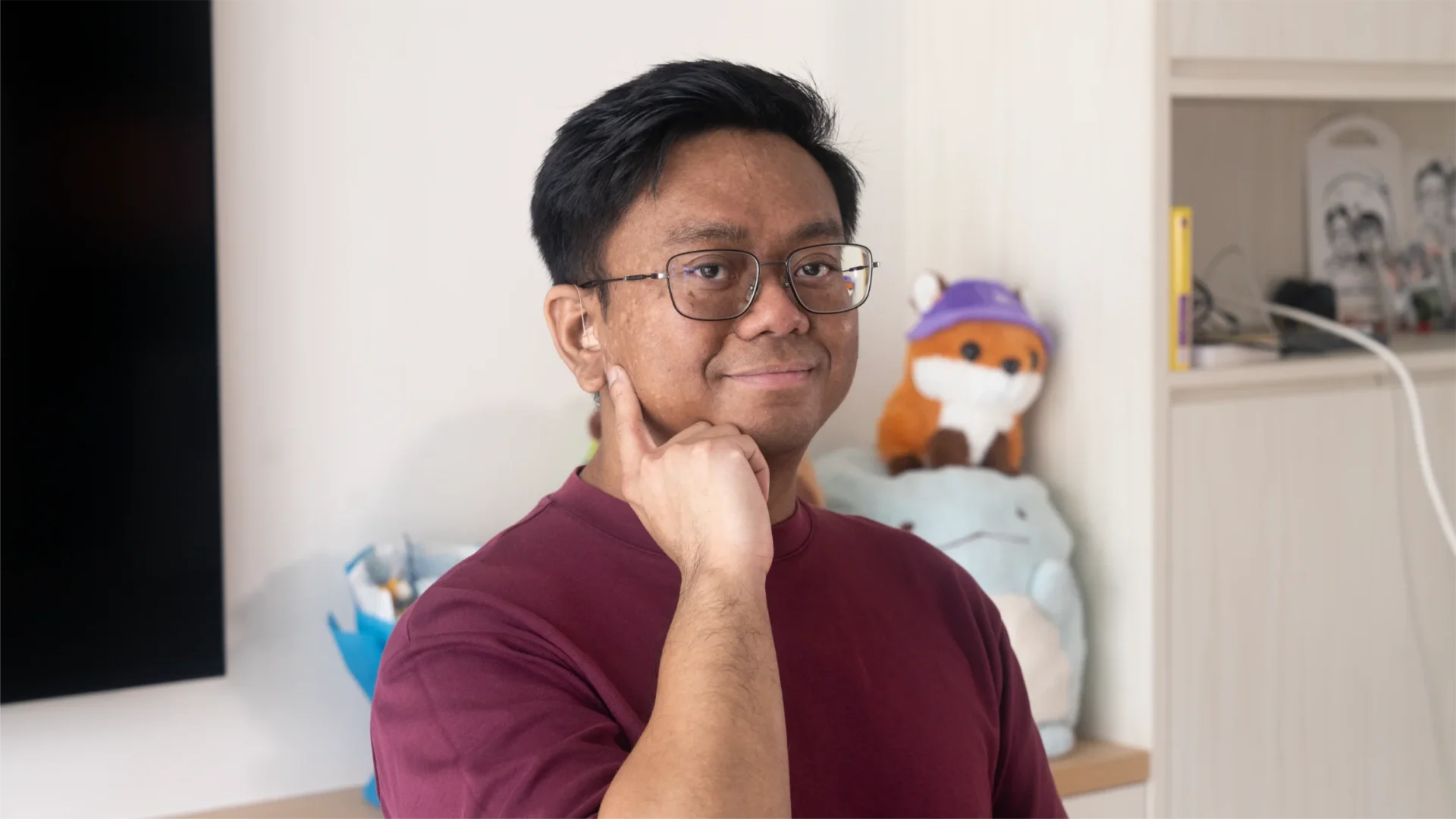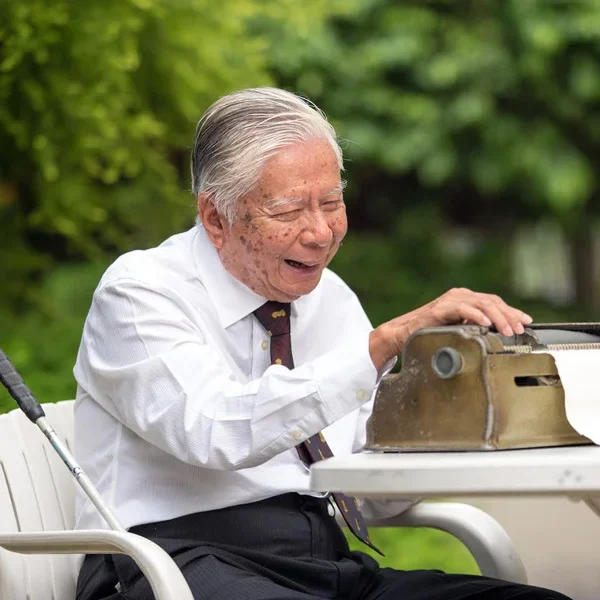YP
“I want people to see me for what I am. Not my name or my looks”
How would you describe yourself to people who meet you for the first time?
I’m a very inquiring person who is always curious to find out more. I am also observant, especially about my surroundings. It is also important to me that people get to know what I am first, rather than form assumptions based on my name or my physical appearance.
I have many interests, especially music and reading. My fondness for classical music, operas, and classic stage musicals is often one of the first things people notice about me. These genres make me feel connected to the great creative minds of the past, and the time I spend listening to such music is like a meaningful conversation with them. In those genres I find comfort, perspective, and a way to better undersand both myself and the world around me. Some of my favourite classical works are the Beethoven symphonies, Handel’s Messiah, the Rimsky-Korsakov suite Sheherazade and Dvořák’s New World Symphony. I also spend some time listening to much-loved operas like Carmen, La bohème, Die Zauberflöte (The Magic Flute) and, on a lighter note, Gilbert & Sullivan operettas like The Mikado and The Pirates of Penzance.
Some of my favourite musicals are The Sound of Music, Cats, Oliver!, The Phantom of the Opera and Les Misérables. To me, musicals go hand in hand with operas. They are both theatre scores that tell unforgettable stories through powerful music. While I’m not into modern and trendy pop music, stage musicals expose me to other genres and styles. For example, West Side Story has jazz, Hamilton has rap and hip-hop, and the Andrew Lloyd Webber musicals have 60s and 70s pop music styles.
The seasons of the year often inspire my listening choices. I’ll give you two examples. Around July and August, the National Day spirit in the air makes me want to listen to operas like Aida and Die Meistersinger von Nürnberg (The Master-Singers of Nuremberg), and Handel pieces like the Water Music, Zadok the Priest and Messiah. In another example, when we’re near the end of the year, I find myself listening to Beethoven’s music. I find that the striving in his music helps me find a resolution to a year that is ending. Listening routines such as these keep me grounded, and bring me great comfort.
Reading classic novels is another one of my interests. Books like To Kill a Mockingbird (the 1960 novel by Harper Lee) and Frankenstein (the 1818 novel by Mary Shelley) tell meaningful stories, and are always relevant regardless of time period.
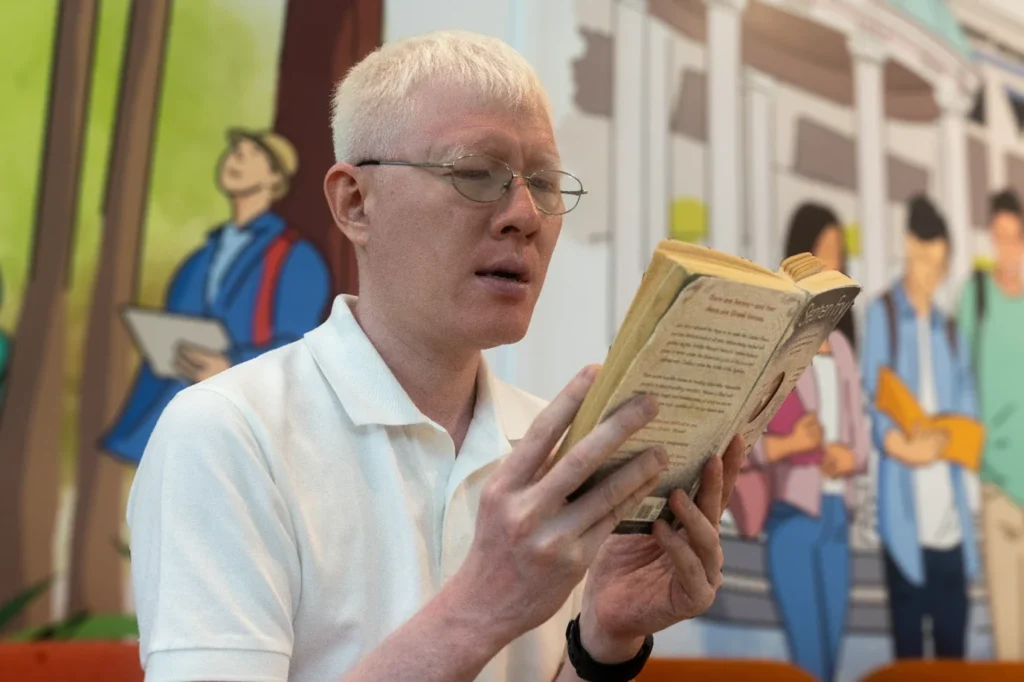
You have a few conditions, some of which are more visible than others. Can you describe them for us?
I was born with albinism, which gives me very light hair and skin. My eyes are sensitive to glare. As an albino, I experience a common visual condition called nystagmus. This means that my eyes constantly move back and forth when I try to read. Those eye jitters are involuntary, but it is a way for the eyes to form more refined images from overlapping images in the brain. In addition, I have the mild astigmatism, which affects how I see fine details. This is why I tend to hold books close and avoid small print or bright lights. Despite these challenges, my vision is still functional, and I can read and enjoy printed materials like novels or music scores. When I read, it helps to have fonts that are sufficiently large, with wide letter apertures for easier clarity.
I’m also on the autism spectrum. That means I sometimes need extra time to adjust to new environments or routines. But it also helps me notice details and patterns others might miss. These differences are part of me, but they don’t define what I can do or the life I choose to lead.
Can you tell us about some instances when you were supported by others? What did that look like for you?
Adjusting to new situations can be challenging for me. When I’m in an unfamiliar environment, I sometimes feel imbalanced, and unsure about what to expect. Through my schooling years, kind and supportive people made all the difference.
When I was a student at Dover Court Preparatory School (now called Dover Court International School), the principal, the late Dr Maureen Roach, made it a priority to ensure the school environment was inclusive and welcoming. I spent 10 years at the school. In my later years there, I was given the opportunity to integrate into mainstream classes with the other students. I think this made me a lot more confident that I could learn and exist in the world just like anyone else. I stayed in very close contact with her even after I left, right up to her death of cancer in April 2025.
When I moved on to Zhonghua Secondary School in 1997, the principal Mrs Chua Yen Ching had a habit of leaving students handwritten notes of encouragement. When my classmates and I went through a rough patch, I remember that Mrs Chua left us a handwritten note saying we were a “very caring class of students”. This note revived our spirits and helped us realise that our value as human beings mattered more than just academics. I also recall feeling discouraged by a low mark on an essay I had written. Mrs Chua wrote me a note of encouragement. She appreciated that I demonstrated a commitment to my family in the essay. To her, those sentiments were more important than the low mark the essay received.
Back then, the needs of students in special education were not as well-understood as they are today.
For people on the autism spectrum, it’s important that the adults in our lives make the effort to encourage us to explore our strengths. Kindness and compassion can go a long way too. And I’m very grateful for these people in my life who have given me the opportunities to grow and thrive.
What does a typical week look like for you?
I work as an Education Support Officer at Pathlight School, which is a special school for students with autism. About half of the week, I work on-site at the school, and the rest of the time, I work remotely. On those days I would work from a campus library – I enjoy quiet surroundings, and remote working gives me a sense of energy and focus.
My work largely revolves around curating educational content for the students at the school. A large part of the work involves working on e-learning content for their in-house platform. One project I remember very fondly is the creation of a series of modules teaching students about the various festivals that we celebrate in Singapore. I really enjoyed putting together those modules about the whys behind those traditions and celebrations. I also have fond memories of a project on Singapore’s heritage. It felt so good to curate materials that introduced landmarks and cultural practices that are significant to Singapore.
I’ve also compiled three volumes in a series called “A Book a Day”, where I include summaries of popular and impactful stories to encourage students to read more, improve their language skills and expand their world view. For example, I included summaries of Watership Down, To Kill a Mockingbird and The Lord of the Rings in Volume 2 of the series. I read the books before writing the summaries and fell in love with them. This allowed me to write especially meaningful summaries.
When I graduated from university, I wasn’t immediately sure how I could meaningfully contribute to society using my temperament, inclination and skills. A family friend later suggested I apply for a position at Pathlight School, and I’m very grateful for her encouraging suggestion. I feel that my work at Pathlight School has given me purpose and has tapped into my strengths and interests so far. I’ve enjoyed support from my colleagues and a job coach.
Of course, I’m not all work and no play. I read and listen to music during my down time. I also play the piano, swim, do gym workouts and go for walks every week.
Can you tell us a bit more about yourself? What are some fond memories that you hold close and mean the most to you?
When I interact with people, I would like them to assure them that my family name or home background need not intimidate them. I hope to assure people I meet that I’m just like everyone else.
Although I’ve got many cherished memories, one memory in particular continues to guide my yearly routine. When my siblings and I were growing up, we often spent Christmas holidays at a chalet. My parents did this too when they were growing up. We would swim, explore our surroundings, and spend time together before joining the extended family for Christmas Eve dinner.
These days, my siblings prefer travelling during the Christmas holidays. Even so, my heart is still with the chalets and I still return to them each year. I am drawn to the peaceful atmosphere of the greenery and heritage trees and the rich heritage in the colonial buildings that were originally built for the British military before Singapore’s independence. This place has become valuable to me. It has kept me away from the clamour of commercial Christmas celebrations in town. It has also allowed me to focus on mental health and well-being. It’s good to see those topics come into the foreground after the upsets of the Covid pandemic.
I don’t mean to downplay the importance of family ties. When I travelled overseas with my parents and siblings during past Christmas holidays, I missed the sense of routine and familiarity that I got from our previous chalet staycations. A friend of mine said to me that it is better to be happy in a place where you choose to be. It is not OK to be unhappy and in a large group in a place that isn’t of your choosing. I’ve taken those sentiments to heart each time I spend Christmas in the chalet.
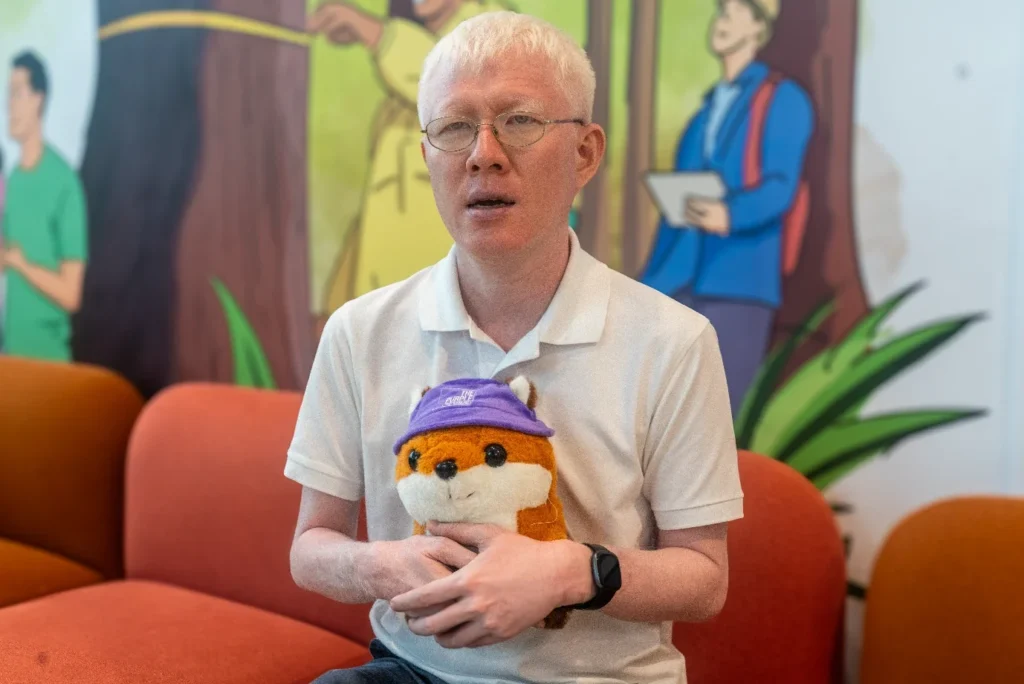
How has Singapore grown in inclusion over the years, and what are your hopes for our people and nation?
I’m encouraged to know that PM Lawrence and the 4G leaders are shaping a fresh social compact. The 3G leaders including Dad took the first national-level steps towards promoting kindness, compassion and inclusion. I’m hopeful that PM Lawrence and his fellow leaders can continue on this path when they lead and govern Singapore.
I recently read the Antonie de Saint-Exupéry story The Little Prince. Though it’s a simple story with fantastical, unrealistic elements, I was very touched by its message to readers: that the most important things can only be seen with the heart, not the eyes.
There are many people whose value to society will not be immediately obvious to others. This could be because of disability, poor grades, poor health or other reasons. But I think stories like The Little Prince teach us that life is much more than what we can superficially see, measure or understand.
I’ve had many people in my life who took the time to care and nurture me because I was special to them. And I hope the Singaporeans of today and tomorrow can do that and go a little further as we build a kinder nation for the future.

